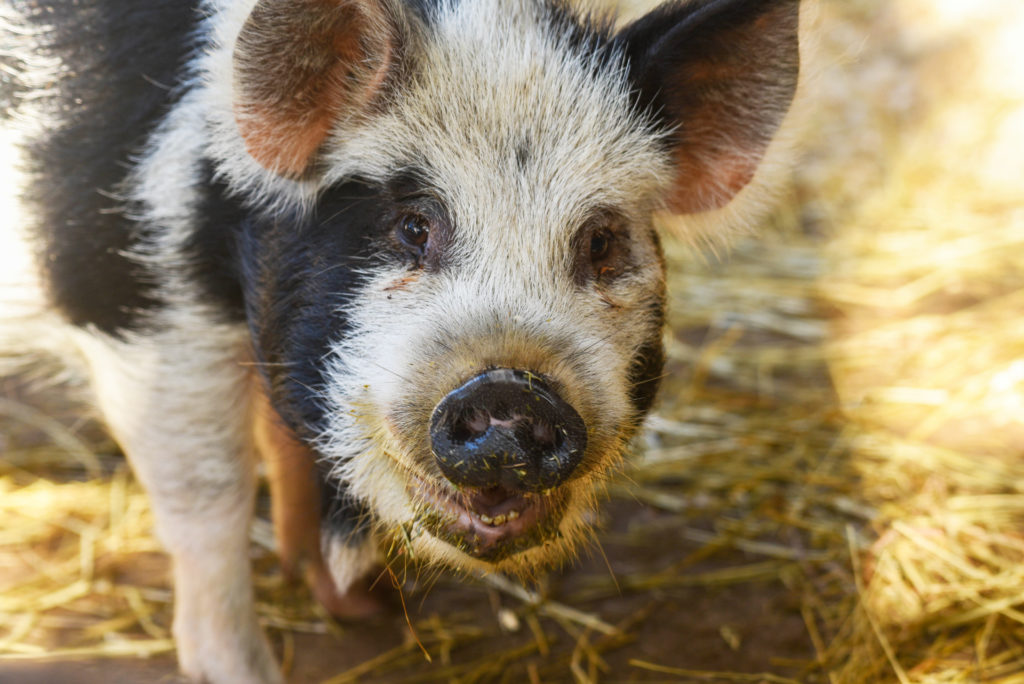Overview
Physical Description
Kunekunes (pronounced “cooney cooney”) are a small breed of domesticated pig. In fact, they are smaller and fatter than most domesticated pigs (hence their name). They have round bellies, stubby legs, and short snouts. Most also have one or more chin tassels, called “piri piri,” which are a distinctive trait of the breed. Kunekune coats vary in color and pattern, ranging from speckled or blotchy to solid hues of brown, black, white, tan and gold. Coat texture may vary as well, from short and silky to coarse and curly.
Origins
Until fairly recently, kunekune pigs were found only in New Zealand living among the Maori people. The breed likely originated somewhere in Asia. It is unclear how and when kunekunes first arrived in New Zealand.
Introduction to North America
By the time others “discovered” the breed in the late 1970s, there were only about 50 purebred kunekunes left in New Zealand. Over the next few decades, a dedicated group of conservationists managed to expand kunekune herds in New Zealand and arranged for some kunekunes to be exported to the United Kingdom (U.K.) to start new herds. Kunekunes first came to the United States in the 1990s. All kunekunes in the U.S. are descended either from New Zealand or U.K. imported stock.
Uses
Most kunekune pigs are raised as companion animals. Generally speaking, they are easygoing, easy to care for, and very affectionate.
Current Status
While still rare, kunekune pigs are now found in New Zealand and a number of other countries, including the U.S.
Taxonomy
- Kingdom: Animalia
- Phylum: Chordata
- Subphylum: Vertebrata
- Class: Mammalia
- Genera: sus scrofa scrofa
- Species: kunekune

